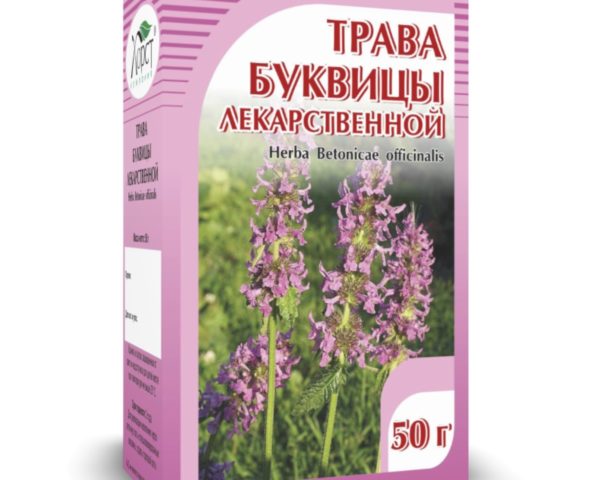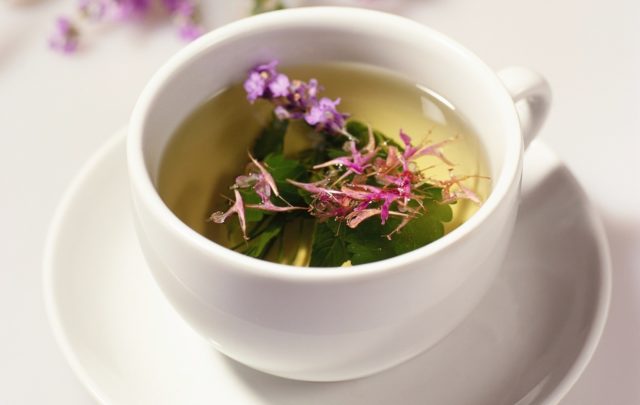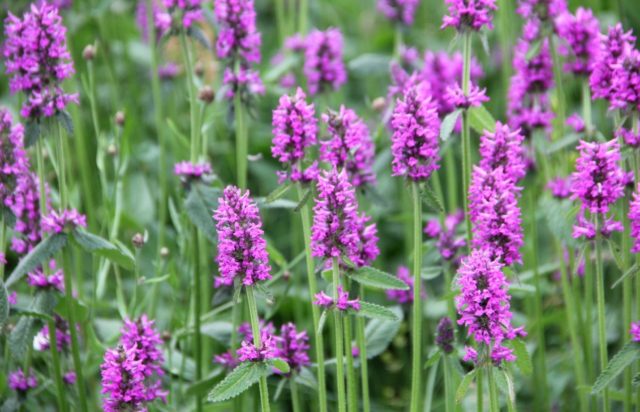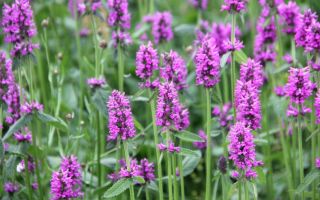Content
Many herbal medicine fans recommend using the drop cap (better known as field sage, medicinal purse) as an antiviral, strengthening agent against toxins. Leaves, flowers, rhizomes of the plant have a positive effect on health. The medicinal properties and contraindications to the herb drop are important to consider before starting therapy because of the risk of side effects.
The chemical composition of the drop cap
Field sage is known to many due to the inclusion in its composition of a large number of complex essential oils. Alcohols, phenols, aldehydes, terpenes and other organic compounds are isolated in them. The initial letter is the source of such substances:
- betaine, which is used as a hepatoprotective agent and a means to improve metabolism;
- phenolic acids;
- depsides;
- choline;
- phenylethanoids;
- mineral salts;
- vitamins C, K.
The aboveground parts of the plant contain tannins, bitterness, resins, and mucus.
Useful properties of the initial plant
In the official medicine of Russia, field sage is not used. But in a number of other states, including the EU countries, the drop cap is considered a medicinal plant. It is the raw material for a number of herbal preparations.
The initial cap is characterized by a pronounced anti-inflammatory effect. When it is taken, the growth and reproduction of microbes is suppressed, the toxins that they produce are neutralized. The herb is astringent. Thanks to this effect, it is recommended for people with gastrointestinal disorders. The plant stimulates the secretory activity of the digestive system.
Tincture of the herb of the drop cap is used as a choleretic and diuretic. It helps to lower blood pressure. The herb has a positive effect on the state of the genitourinary system. Its use in the form of decoctions or infusions prevents the development of urinary tract infections.
But this is not a complete list of the healing properties of the drop cap. It is used as a sedative and expectorant. In folk medicine, grass is used for prolonged cough, bronchitis, asthma, whooping cough. Due to the positive effect on the state of the nervous system, a drop cap is recommended for frequent headaches, emotional exhaustion.
Infusions are also used for external use. Due to the inclusion in the composition of the alkaloid stachydrine, the letter promotes accelerated blood coagulation and has a local anti-inflammatory effect. Healers recommend making lotions from the herb infusion and washing the wounds with it. The complex effect accelerates wound healing.

Dried chopped drop cap herb is irritating to the respiratory tract. It makes you sneeze.It is recommended to use the herb as snuff for people with chronic rhinitis.
Harm drop caps
Uncontrolled use of herbal products is prohibited. The herb of the drop cap has a pronounced hypotensive effect, so people who do not suffer from hypertension should be careful.
When using infusions, decoctions of field sage, one should remember its ability to accelerate the process of blood coagulation. Excessive use of the drop cap increases the risk of blood clots.
Uncontrolled intake of plant-based products can lead to toxic effects on the body. In case of an overdose, the following symptoms occur:
- nausea;
- weakness;
- increased heart rate;
- lowering pressure;
- dizziness;
- vomiting.
Other signs of poisoning are possible. They arise due to the influence of alkaloids and glycosides that are contained in the plant. But if the recommended doses are followed, there are no problems with the use of the herb.
Contraindications to the letter
Some people abandon drug treatment in favor of herbal medicine, believing that plants are harmless. But before taking infusions and decoctions made on the basis of the herb of the drop cap, you should familiarize yourself with the list of contraindications.
It is forbidden to use the plant for pregnant and lactating women. Elderly people are also advised to observe caution. Contraindications include:
- hypotension;
- increased tendency to thrombosis;
- allergic reactions;
- gastritis with low acidity;
- thrombophlebitis;
- phlebeurysm.
Do not use a drop cap to treat people diagnosed with depression. Due to the pronounced sedative effect of the herb, the herb may worsen.
Rules for using drop caps
Before using any medicinal substances, including phytopreparations, you should consult your doctor and make sure that there are no contraindications.
Alcohol tinctures are recommended to be taken no more than 5 ml 2-3 times a day. It is advisable to dissolve the measured amount in 50-100 ml of water. Healers advise broths to drink 1/3

The use of a drop cap in folk medicine
All parts of the plant are used for medicinal purposes. They make decoctions, infusions, teas and powders.
For patients with hypertension, diseases of the nervous system, an alcoholic tincture of flowers is recommended. To prepare it, you should pour 1/3 of a can of crushed and dried raw materials, top up with vodka to the top. It is better to use a container with a volume of 0.5 liters. The infusion is prepared in a dark place for 14 days.
As a means that has a diuretic and choleretic effect, healers advise using an infusion of leaves and roots. Pre-dried and crushed parts of the plant take ½ tbsp. l., pour 1 tbsp. boiling water and insist for 2 hours. Drinking the medicine is recommended for 2 tbsp. l. up to 4 times a day.
Infusion of the leaves of the drop cap has a hypotensive and calming effect. For its preparation 1 tbsp. l. raw materials are poured with a glass of boiling water for 2-3 hours. After cooling, the agent can be filtered and taken for medicinal purposes, 100-120 ml per day, divided into 3-4 doses.
Patients with asthma, bronchitis, persistent cough are recommended to drink tea from the herb of the drop cap. For its preparation, 4-5 dry leaves of the plant are poured with a glass of boiling water for 10-15 minutes. It can be consumed 2-3 times a day in a glass. The prepared tea can be used as a gargle for sore throats. It is also advised to drink it as a tonic and anti-inflammatory medicine.Tea has a positive effect on the health of people with psoriasis, scleroderma.
As an emetic and laxative, herbalists advise using a decoction of the roots of the drop cap. To prepare it, 20 g of dried raw materials are poured into 200 ml of water and boiled for about 20 minutes. The remedy should be taken in 1 tbsp. l. three times a day.
Healers recommend applying fresh ground leaves to wounds and ulcers. In the form of lotions and compresses, the herb of the drop caps is used for rheumatism, tumors.
Collection and storage rules
Field sage is harvested during the flowering period. Herbalists advise to cut off about 30 cm of the upper part of the plant with scissors. If only leaves are required, then they are plucked by hand. It is better to harvest the roots in the autumn.

The harvested parts of the plant should be dried not in direct sunlight, but in the shade. Sheds, attics and other well-ventilated areas are best suited for this purpose. The raw materials should be laid out in a thin layer, mixed periodically. Blanks can also be made in special dryers at a temperature of 40-50 ° C.
You can store the prepared raw materials for 2 years in paper bags, cardboard boxes.
Conclusion
Before starting herbal medicine, you should find out the medicinal properties and contraindications to the herb drop cap. Decoctions, infusions and teas from the plant are recommended for patients who suffer from nervous disorders, hypertension, digestive problems, and bile secretion. But before taking medicinal drinks from the drop cap, you should consult your doctor. If there are contraindications to the use of herbal medicines, it is advisable to refuse.

